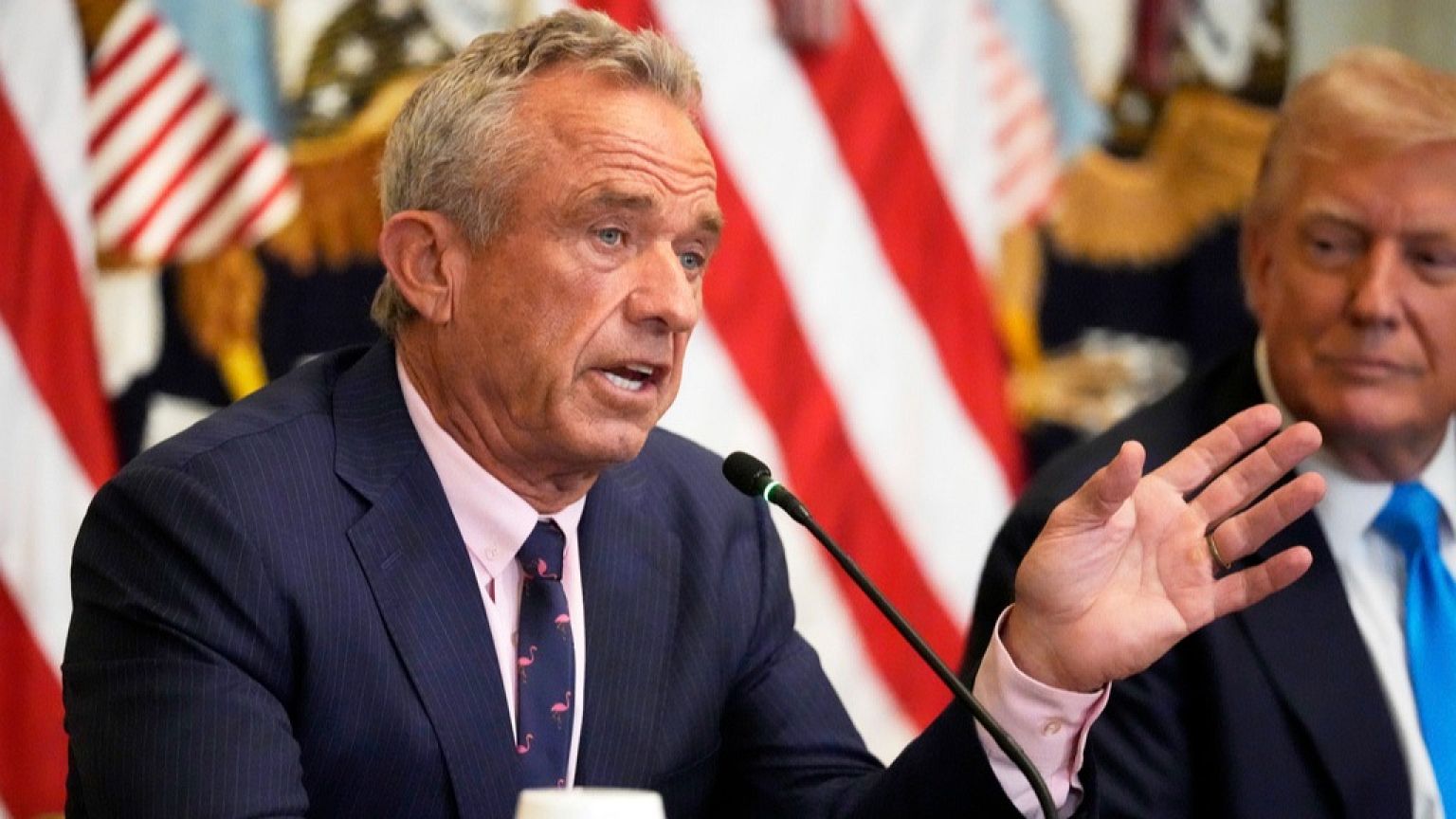Health
US Health Secretary Halts $500 Million in mRNA Vaccine Funding

The United States Department of Health and Human Services has announced the cancellation of nearly two dozen vaccine development projects, resulting in a halt of approximately $500 million in funding. This decision, made by Health Secretary Robert F. Kennedy Jr., shifts the focus from existing messenger ribonucleic acid (mRNA) technologies to the pursuit of a universal vaccine that aims to mimic natural immunity.
In a statement released on March 15, 2024, Kennedy outlined the administration’s new direction, which includes halting funding for projects designed to combat respiratory viruses such as influenza and COVID-19. The decision affects vaccine initiatives backed by major pharmaceutical companies, including Pfizer and Moderna. Kennedy emphasized the need to prioritize safer and more effective vaccine strategies that can better adapt to viral mutations.
Kennedy’s criticism of mRNA vaccines, which have been at the forefront of the COVID-19 response, reflects a broader move towards redefining vaccine development priorities. “To replace the troubled mRNA programmes, we’re prioritising the development of safer, broader vaccine strategies, like whole-virus vaccines and novel platforms that don’t collapse when viruses mutate,” Kennedy stated in a video posted on social media.
This decision has drawn significant concern from public health experts. Mike Osterholm, a leading infectious disease expert from the University of Minnesota, described the move as potentially dangerous, stating, “I don’t think I’ve seen a more dangerous decision in public health in my 50 years in the business.” He highlighted the advantages of mRNA technology, particularly its rapid production capabilities, which are crucial during emerging pandemics.
Similarly, Paul Offit, a vaccine expert at Children’s Hospital of Philadelphia, criticized Kennedy’s approach, labeling it short-sighted. “It’s certainly saved millions of lives,” he remarked regarding existing mRNA vaccines. Traditional vaccine development methods typically involve growing portions of viruses, a process that can be time-consuming. In contrast, mRNA technology allows for the injection of a genetic blueprint that instructs the body to produce its own immune response.
Despite the withdrawal of funding for these mRNA projects, the Department of Health stated that other applications of mRNA technology within the department would not be affected by this announcement. The move indicates a significant shift in vaccine development priorities, as the department commits to investing in more effective solutions.
Speaking in Anchorage, Alaska, shortly after the announcement, Kennedy reiterated the government’s commitment to developing alternatives to mRNA vaccines. The administration’s objective, he noted, is to create a universal vaccine that provides comprehensive protection against a range of viruses, ultimately aiming to enhance public health outcomes.
As the situation evolves, the implications of this decision will likely resonate throughout the public health community and beyond, raising questions about the future of vaccine development in the United States and its ability to respond to inevitable health challenges.
-

 Top Stories3 months ago
Top Stories3 months agoTributes Surge for 9-Year-Old Leon Briody After Cancer Battle
-

 Entertainment4 months ago
Entertainment4 months agoAimee Osbourne Joins Family for Emotional Tribute to Ozzy
-

 Politics4 months ago
Politics4 months agoDanny Healy-Rae Considers Complaint After Altercation with Garda
-

 Top Stories4 months ago
Top Stories4 months agoIreland Enjoys Summer Heat as Hurricane Erin Approaches Atlantic
-

 World5 months ago
World5 months agoHawaii Commemorates 80 Years Since Hiroshima Bombing with Ceremony
-

 Top Stories3 months ago
Top Stories3 months agoNewcastle West Woman Patricia Foley Found Safe After Urgent Search
-

 Top Stories5 months ago
Top Stories5 months agoFianna Fáil TDs Urgently Consider Maire Geoghegan-Quinn for Presidency
-

 World5 months ago
World5 months agoCouple Convicted of Murdering Two-Year-Old Grandson in Wales
-

 World5 months ago
World5 months agoGaza Aid Distribution Tragedy: 20 Killed Amid Ongoing Violence
-

 World5 months ago
World5 months agoAristocrat Constance Marten and Partner Convicted of Infant Murder
-

 Top Stories4 months ago
Top Stories4 months agoClimbing Errigal: A Must-Do Summer Adventure in Donegal
-

 Top Stories4 months ago
Top Stories4 months agoHike Donegal’s Errigal Mountain NOW for Unforgettable Summer Views









